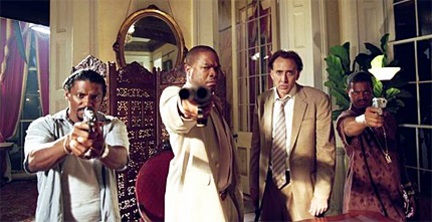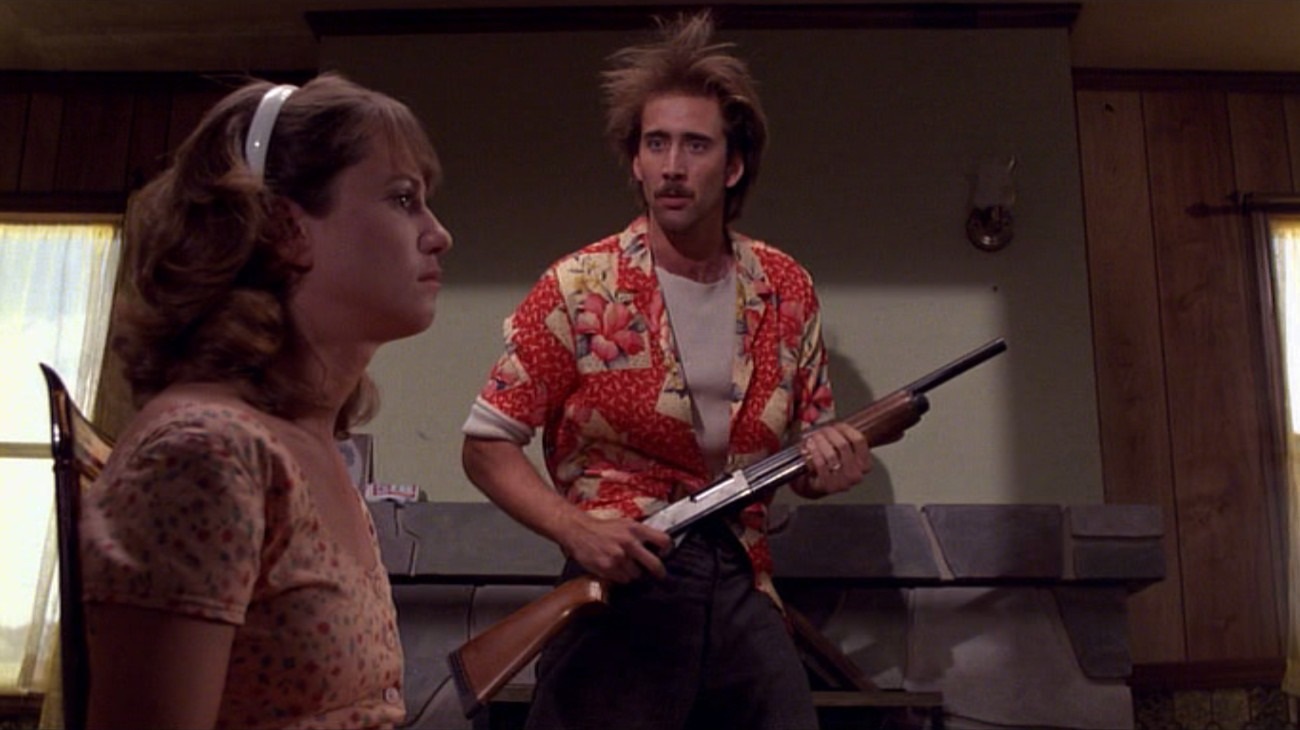Nicolas Cage Says He Took "Crummy" Roles to Pay Off $6 Million Debt
Nicolas Cage has said he took "crummy" movie roles to pay off $6 million in debt after he "over-invested in real estate" before the market crashed in the late 2000s.
"I was over-invested in real estate. It wasn't because I spent $80 on an octopus. The real estate market crashed, and I couldn't get out in time,"
"I paid them all back, but it was about $6 million. I never filed for bankruptcy."
Speaking on CBS' "60 Minutes," the Academy Award-winning actor spoke about how he got himself in — and then out of — millions of dollars of debt over the last decade.
The "Renfield" star said that it was properties, which include castles in Germany and England, as well as a mansion in New Orleans and a private island in the Bahamas, not eccentric purchases such as dinosaur skulls and pet octopuses, that racked up his hefty debts.

So It wasn't the 122 Million New Orleans FQ Building .....or his 35 Million Dollar a Day Crafting habit.? It wasn't the Tomb of Nick Cage in the French Quarter (valued at 22 Million). Ok then sir.

Speaking on the movies he made during that time period, many of which were released direct-to-video, he said: "Even if the movie ultimately is crummy, they know I'm not phoning it in, that I care every time."
"But there are those folks that are probably thinking that the only good acting that I can do is the acting that I chose to do by design, which was more operatic and, you know, larger than life and so-called 'Cage rage,' and all that. But you're not gonna get that every time."
Nicolas Cage has revealed that he took on "crummy" movie roles to pay off a debt of $6 million, which he incurred after investing heavily in real estate before the market crashed in the late 2000s. Speaking on CBS' "60 Minutes," Cage explained that it was not eccentric purchases like dinosaur skulls or pet octopuses that had caused his financial woes, but his investments in properties such as castles in Germany and England, a mansion in New Orleans, and a private island in the Bahamas. "I was over-invested in real estate. It wasn't because I spent $80 on an octopus. The real estate market crashed, and I couldn't get out in time," he said.
Despite the financial pressure, Cage continued to work, taking on three to four movie roles a year. "Work was always my guardian angel," he said. "Even if the movie ultimately is crummy, they know I'm not phoning it in, that I care every time." He also noted that while some people may believe his best performances were his more "operatic and larger-than-life" roles, such as his character in "Bad Lieutenant: Port of Call New Orleans," Cage is capable of delivering strong performances in any genre. "There are those folks that are probably thinking that the only good acting that I can do is the acting that I chose to do by design, which was more operatic and, you know, larger than life and so-called 'Cage rage,' and all that. But you're not gonna get that every time," he said.

Cage's career has spanned over three decades and has been characterized by an eclectic mix of roles, from comedic turns in films such as "Raising Arizona" to more dramatic performances in "Leaving Las Vegas," for which he won an Academy Award for Best Actor. Despite the ups and downs of his career and personal life, Cage remains passionate about his craft. "I love acting. I'm still as passionate about it as I ever was," he said. "I still have a lot to offer. I still feel like I can make some really great movies."

Cage's most recent film, "Pig," has received critical acclaim for his performance as a truffle hunter searching for his beloved pig in the Oregon wilderness. The film has been described as a return to form for Cage, with some critics calling it one of his best performances in years. "It's really one of his greatest roles in ages," said David Ehrlich of IndieWire. "It's a reminder of what a unique talent he is, and it's one of those roles that feels almost tailor-made for him."
Despite the acclaim, Cage remains humble about his success, acknowledging the hard work that goes into crafting a strong performance. "I try to just let the work speak for itself," he said. "I don't really like to talk about it too much, because I think the work should just be seen and appreciated for what it is."


